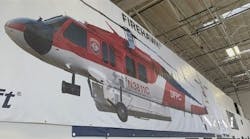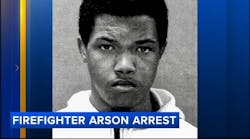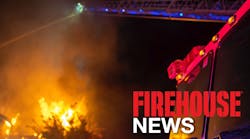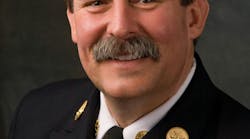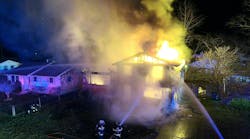The concepts of doctoral education and firefighter are not usually connected in the same thought by anyone in the fire service, higher education or society in general. At the beginning of the 20th century, “firefighter” and “bachelor degree” were not thought of together.
Today, there are 32 bachelor degree and six master degree programs related to fire service. In 2009, a bachelor degree will be required to apply for the International Association of Fire Chiefs (IAFC) Chief Fire Officer (CFO) designation and the bachelor degree will be the minimal academic requirement to get into the National Fire Academy (NFA) Executive Fire Officer (EFO) program. Finally, in 2007, you will need a bachelor degree to take the test for battalion chief in the FDNY.
Why should the firefighters reading this article be interested in doctoral education, especially if the idea of more school turns your stomach? Two words you did not learn in firefighter rookie school or any course you have ever taken – “doctrine” and “doctorate.”
Doctrine impacts you every day. Fire service doctrine is what we know, teach and do. All of our national standards, training materials and books, plus your local standard operating procedures (SOPs), manuals, drills and traditions make up our fire service doctrine. Each profession has its unique doctrine. What makes each one a profession is that all the people who practice in that field are following the same doctrine. A profession’s doctrine is created through scientific research and disseminated through writing, teaching, learning and application.
Today, fire service doctrine is largely based on experience and consensus, not science and research. This explains why East Coast and West Coast fire departments practice differently. Why volunteer fire departments practice differently than paid fire departments. Why some apparatus responds with one firefighter and others respond with four firefighters. Most often, our books are based on the author’s experience, which usually comes from one fire department. Our training manuals are based on our consensus standards. Groups of fire service practitioners come together and agree on the content of the standards and training manuals, based on their collective experience, but that process is not based on research and science. Who is in charge of fire service science and research? As yet, no one!
Now let’s look at the word “doctorate.” According to the Carnegie Foundation study on the doctorate, the purpose of the doctoral education “…is to educate and prepare those to whom we can entrust the vigor, quality and integrity of the field. This person is a scholar first and foremost, in the fullest sense of the term. Such a leader has developed the habits of mind and ability to do three things well: creatively generate new knowledge, critically conserve valuable and useful ideas and responsibly transform those understandings through writing, teaching and application. We call such a person a ‘steward of the discipline.’ ”
The existence of a doctoral degree in a discreet discipline is one of the most significant conditions that must exist for a discipline to be accepted as a true profession by the academic community, other professional disciplines and society in general. The doctoral degree higher education infrastructure is what generates the doctrine for the profession to use. This doctrine must be based on science and research making it generalizable to the entire profession. It is the stewards of the discipline, those with doctorates, who create the doctrine for the profession, by employing science and research.
There are fire service practitioners today who have doctorates, but their degrees are not it in fire service studies because no such program exists. These individuals wanted the science and research skills, but had to study other disciplines because studying the fire service discipline at the doctoral level was not available to them. They studied fire service-related disciplines like education, administration, sociology, psychology, business, engineering, medicine, history and law. These practitioners realized that the fire service is an inter-disciplinary subject. We use the science and research for other disciplines in our daily practice.
When doctrine of these related disciplines is used in the unique fire service environment, the various scientific laws and principles may be affected. For example, the reaction of a chemical in the laboratory is predictable. When a tanker truck full of the same chemical crashes into a building downtown during rush hour, the science related to the chemical is different than the laboratory science. Another example: The science and research related to labor management typically does not take into account employees who work 24-hour shifts and sleep on the job, nor does it study a workforce made up of 80% voluntary labor expected to risk their lives doing the job.
These types of questions should be of interest to the fire service discipline. The place to study such issues is in a fire service studies doctoral program. Until we as a discipline can point to the science and research to justify our practice, we will continue to be subject to the whims of others who control our funding, standards, effectiveness and efficiencies.
Consider that there are 29 doctoral programs related to the police service. This higher education infrastructure generates about 100 dissertations per year compared to about 10 fire service dissertations per year. At Harvard University’s Kennedy School of Government, there are 12 faculty, fellows and researchers conducting research projects related to the police service. There are no programs listed related to the fire service. Is it any wonder that the police service receives more political and economic support? There are five doctoral programs related to the study of folklore. The fire service needs at least one doctoral program related to our discipline.
Getting a doctorate is not for everyone in the fire service nor does every fire chief need a doctorate to be successful, but some firefighters reading this will be motivated by the idea of conducting research that can help the fire service discipline become a true profession. A fire service doctoral studies infrastructure needs to be created so the stewards of the discipline can have a place to conduct their research from which we all can benefit. This connection among science, research and practice will help us all better serve each other and our communities.
What do you do with a doctorate? Those who graduate with a doctorate will assume three duties. First, you will generate new doctrine for the fire service to use. You will do this through scientific research. The questions you ask and the answer you generate will meet the highest possible standards of scholarship. Your work will be for the betterment of the entire fire service.
Second, your work will be based on a complete understanding of the history of the fire service and the foundations of the discipline. Your work will maintain the continuity, stability and vitality of the fire service by continually investigating which ideas to keep and which ideas to reject. Through your work, the best of the past will be preserved for those who follow. You will respect other disciplines and continually look for relationships between the fire service and other fields for their mutual benefit.
Third, you will represent and communicate fire service doctrine to the widest possible audience; from firefighter to policy maker, from lay public to Nobel laureates. You will do this through your writing, teaching, discourse and practice. This duty requires leadership that exposes your beliefs, values and biases to public scrutiny and review. Your work will be defendable based on the best available science and research.
If improving and impacting the overall fire service discipline sounds interesting to you; if working in the national and international fire service arena is what you want; if the role of change agent, researcher, educator, philosopher and advocate appeals to you; and if the concept of building up the fire service discipline as a whole seems like a meaningful life goal, going for the gold tassel and becoming a steward of the fire service discipline may be for you.
If you are still not convinced that doing all that work to get your doctorate will be worth it, think about this. When the first fire service studies doctoral program is created, it will need textbooks and faculty. To teach in a doctoral program, you need a doctorate; to write books for a doctoral program, you need a doctorate. So, those firefighters who have doctorates are guaranteed part-time work or a new career in academia after they retire. Finally, people will call you “Doctor” and your mother will be proud.
Dr. Burton A. Clark will present “Calling a Mayday” at Firehouse Expo 2005, July 26-31 in Baltimore.Dr. Burton A. Clark, EFO, CFO has been in the fire service for 34 years. He was a firefighter in Washington, DC and assistant fire chief in Laurel, MD. Clark is the Management Science Program chair at the U.S. Fire Administration’s National Fire Academy and serves as deputy director of a National Emergency Operations Team for the Department of Homeland Security. He is a part-time instructor for the Maryland Fire Rescue Institute, adjunct professor of research at Grand Canyon University and dissertation advisor at Nova Southeastern University. Clark holds a B.A. in business administration from Strayer University, an M.A. in curriculum and instruction from Catholic University and an Ed.D. in adult education from Nova Southeastern University. He studied fire science at Montgomery College, emergency management at the Emergency Management Institute and national security at the National Defense University, and is a graduate of the National Fire Academy Executive Fire Officer Program. Clark is a nationally certified Fire Officer IV and Chief Fire Officer designee. He writes and lectures on fire service research, safety and professional development.
